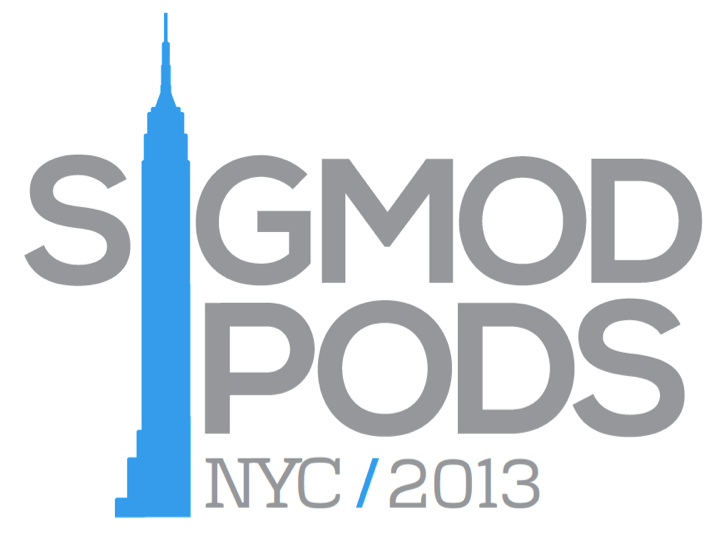Motivation
Two years ago, in Athens, PODS celebrated her 30th anniversary with a very nice event that provided a retrospective on the role of database theory. We believe that the time is now ripe for the database theory community to meet and reflect on itself and its relationship with Computer Science at large. There are two broad, interrelated dimensions for such a reflection, namely, scientific and community. Along the scientific dimension we ask: How can we enhance our research and be even more influential in the future? What are the guiding themes and questions that should underlie the focus of PODS in the 2010's and 2020's? Should the notion of foundations of data management be redefined in order to incorporate new areas and/or include the new contexts in which data is used? Which kind of interactions and synergies exist between core PODS research and the research done in neighboring disciplines, such as theory, IR, data mining, AI, Semantic Web, and others? And along the community dimension we ask: Who are we? Which kind of community have we built? How do the rest of the related CS communities perceive us? How can we strengthen and grow our community while maintaining and fostering our high level of research quality and impact?
These are all questions that are naturally popping up in our community, a phenomenon that we believe to be very healthy: It shows that PODS is a mature community, that is concious about its past, its achivements and its position, but is also careful about its future. PODS has a name among theoretical computer science conferences for a good reason, and we think we can do things to maintain and improve this reputation. The mini-workshop described here is intended to provide a structured starting point for reflection on these issues.
Mini-workshop Content and Structure
The mini-workshop will be a 2.5 hour event that consists of a panel of
8 experts presenting their vision on PODS (80 minutes)
followed by a guided discussion (70 minutes).
The panel will focus on the following four big (and overlapping)
questions:
- (Q1) What is PODS from the scientific perspective? Can we be considered as a purely theoretical conference or as a conference that explores the methods of real data management and analysis? What kinds of impact on practice have we had in recent years? What kinds of impact would we like to have in the coming years?
- (Q2) What is the relationship of database theory with neighbor disciplines, such as foundations of computer science, algorithms, logic in computer science, information retrieval, data management systems, theory of programming languages, artificial intelligence, formal verification, ...? Is foundations of data management simply a "user" of results/techniques from discipline X, or does it also contribute to discipline X?
- (Q3) Which kind of scientific community is PODS? Are we a close, endogamic community, or are we open to receive new ideas from different communities? Do we encourage interactions with other communities, in particular by giving careful consideration to submissions that lie at the interface of data management and some neighboring discipline(s)?
- (Q4) What are the big challenges for database theory in the future? What are the guiding themes and questions that should underlie the focus of PODS in the 2010's and 2020's?
Each one of these questions will be studied and presented by two experts:
- (Q1) Phokion Kolaitis and Dan Suciu.
- (Q2) Tova Milo and Mihalis Yannakakis.
- (Q3) Serge Abiteboul and Georg Gottlob.
- (Q4) Surajit Chaudhuri and Jeffrey Naughton.
When and Where
Tuesday evening, June 25, 2013, at the SIGMOD/PODS hotel.
Organizers
- Pablo Barcelo (University of Chile)
- Wim Martens (University of Bayreuth)





